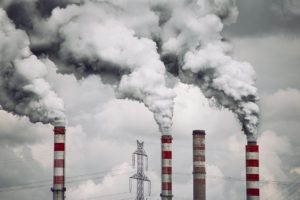
HARRISBURG, PA (April 25, 2025) – This week, Pennsylvania legislators introduced six bills as part of Governor Shapiro’s “Lightning Plan,” which was announced in January. These bills include policies for enhancing the siting, production, and usage of renewable and fossil fuel energy sources alike and updating an outdated energy efficiency program.
Despite growing energy demand from data centers leading to an increased need for clean, reliable energy, only 3% of Pennsylvania’s energy currently comes from renewable sources. Legislation in the Lightning Plan, namely the Pennsylvania Renewable Energy Standards and Sustainability (PRESS), the Reliable Energy Siting and Electric Transition Board (RESET), and the Community Energy bills have the potential to greatly promote the deployment of affordable, renewable energy in Pennsylvania while creating good-paying jobs.
Alex Bomstein, Clean Air Council Executive Director, issued the following statement:
“Our Commonwealth is experiencing an ever-increasing demand for energy that is clean and affordable, especially as more extreme weather events threaten the reliability of gas-fired power plants and as we fail to take aggressive action against polluting industries that increase energy demand while contributing to climate change. These bills that are part of Governor Shapiro’s Lightning Plan are overall an important step in tackling this issue. However, it is critical that Pennsylvania prioritize renewable energy over adding more unreliable fossil fuels to our grid. We look forward to working with the Governor’s office and the Legislature to ensure this plan helps realize new, clean energy projects that keep our air clean, our communities healthy, and our energy affordable.”

The court decision paves the way for groups to contest harmful environmental decisions by invoking the constitutional rights of their members.
Thursday, July 18, 2024, Harrisburg, PA — Today, the Supreme Court of Pennsylvania recognized the fundamental right of PennFuture, Clean Air Council, Sierra Club, and Environmental Defense Fund and their members to defend Pennsylvania’s participation in the Regional Greenhouse Gas Initiative (RGGI), by overturning the Commonwealth Court’s June 28, 2022 denial of intervention.
Participation in RGGI would benefit Pennsylvanians and our economy by lowering carbon emissions, reducing air pollution, saving consumers money, and creating clean energy investment and family-sustaining jobs.
At issue was whether the environmental nonprofit organizations could intervene and become parties to defend the RGGI Regulation in several challenges before the Commonwealth Court. The nonprofits sought, among other things, to protect their members constitutional rights to a clean and healthy environment under Article I, section 27 of Pennsylvania’s constitution, often called the “Environmental Rights Amendment.” The Commonwealth Court had believedfound that Pennsylvania Department of Environmental Protection (DEP) “adequately represented” the nonprofit organizations’ interests in this case and denied the organizations’ application to participate as parties in the RGGI litigation.
The Supreme Court disagreed. The Supreme Court wrote that environmental groups’ “significant evidentiary presentation demonstrating environmental, health, and quality-of-life harms to their individual members established [a substantial, direct, and immediate] interest.” The majority noted: “At stake for these individuals is not just fidelity to the law but the quality of their lives.”
As they had previewed at oral argument in May 2023, the Court was critical of DEP’s failure to raise the Environmental Rights Amendment, and its obligations as a trustee of public natural resources: “The lower court’s analysis of the adequate representation question unreasonably omits the fact DEP has never once invoked the ERA in support of the RGGI Regulation . . . Although DEP raised other arguments in support of the RGGI Regulation, it made none whatsoever premised upon the ERA. Nonprofits sought intervention, inter alia, to fill this void and defend the RGGI Regulation under the ERA…Nonprofits’ ERA defense is hardly “irrelevant” to this case.”
“Today’s decision shows that the Pennsylvania Supreme Court not only recognizes Pennsylvanians’ constitutional right to clean air and a healthy, stable environment, but respects their right to fight for it. The significance of this recognition cannot be overstated,” said Jessica O’Neill, PennFuture’s Managing Attorney for Litigation. “The RGGI Regulation is a critical step for Pennsylvania to protect the air and environment for Pennsylvanians today and for our future generations. PennFuture looks forward to continuing our defense of RGGI and enforcing our members’ constitutional rights.”
“The RGGI Regulation is the most important step Pennsylvania has taken to-date to fight the deepening climate crisis, which makes the Court’s decision to allow public interest voices to defend the Regulation all the more important,” said Alex Bomstein, Executive Director of Clean Air Council. “As we live through more deadly heat waves, polluted air, and extreme weather, our need for the climate and health benefits of the RGGI Regulation couldn’t be starker.”
“We are very pleased with the Court’s decision, which affirms that our members have a keen interest in defending their constitutional right to a clean and healthy environment,” said Tom Schuster, Director of the Sierra Club Pennsylvania Chapter. “This ruling underscores the importance of our Environmental Rights Amendment, particularly as it relates to protections against climate disruption, the defining environmental issue of our time.”
“Today, the Pennsylvania Supreme Court rightly recognized what is at stake for Pennsylvanians and the importance of their constitutional right to clean air and a healthy environment,” says Edwin LaMair, Attorney, Environmental Defense Fund. “We look forward to continuing to provide a robust defense of Pennsylvania’s program, which will substantially cut pollution from power plants and protect communities.”
The decision also dismissed as moot the environmental groups’ appeal of the preliminary injunction of the RGGI rule, since a permanent injunction stopping the RGGI Regulation from going into effect was granted by the Commonwealth Court on November 1, 2023. The appeals of the permanent injunction are presently before the PA Supreme Court, with briefs to be filed this summer. The Supreme Court is expected to rule on the merits of this challenge after briefing has been completed.
Opinions in full:

PHILADELPHIA, PA (August 12, 2022)
This afternoon, the U.S. House of Representatives voted to adopt the Inflation Reduction Act of 2022, a budget reconciliation bill that was approved by the U.S. Senate earlier this week. The bill, which contains $369 billion in climate and clean energy investments, and which preliminary modeling analysis shows will reduce U.S. greenhouse gas emissions by roughly 40% (from 2005 levels) by 2030, will now be sent to President Biden’s desk for his signature.
Image from a preliminary report prepared by Princeton University’s REPEAT Project
Joseph Otis Minott, Esq., Clean Air Council Executive Director and Chief Counsel, issued the following statement:
“After nearly two years of negotiations and stalemates, our country can take a deep breath, bask in this moment, and celebrate the fact that we finally have a historic climate bill that will move the country towards meaningful climate action. While no piece of legislation is perfect, the Inflation Reduction Act will make a historic $369 billion investment in climate change solutions, create millions of high-paying jobs in building America’s clean energy economy, and help prevent thousands of premature deaths by 2030. This bill is a game changer and a much-needed step in the right direction as most Americans are already facing the devastating impacts of climate change.”
“Especially critical for Pennsylvania, the nation’s second largest producer of fossil gas, the IRA will put a price on climate-warming methane pollution from the oil and gas industry, starting at $900 a ton in 2024 and increasing to $1,500 a ton for companies that fail to comply with EPA’s upcoming pollution standards for new and existing oil and gas facilities. This is an essential complementary tool for reducing methane emissions, which are already causing 30% of the global warming that we are experiencing today. We are also excited to see at least $60 billion of investments for programs prioritized by environmental justice communities and advocates.”
“Because this moment arrived after such long, difficult negotiations, we must also acknowledge this is a compromise bill. It does contain troubling giveaways to the fossil fuel industry and could threaten communities that have already suffered disproportionate impacts from fossil fuel pollution. Clean Air Council plans to closely analyze the forthcoming separate bill resulting from these negotiations that will deal with permit reforms. Still, even as the fight to protect against the worst impacts from climate change moves forward, we can breathe a well-deserved sigh of relief that the historic amount of good included in this bill far outweighs the bad. Today is a day to celebrate long-awaited federal climate action.”

